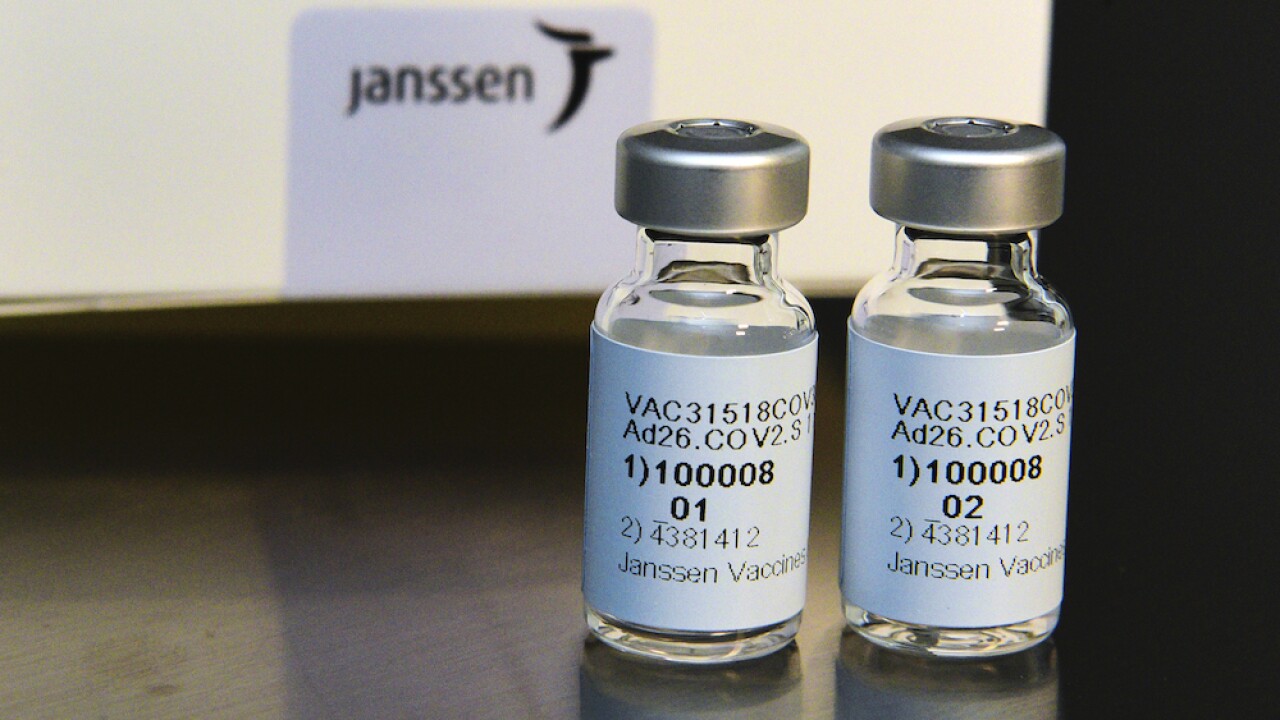Johnson & Johnson said Thursday that new data shows that its single-shot COVID-19 vaccine provides protection against the virus for at least eight months and effectively prevents infection from several variant strains of the virus, including the rapidly spreading delta variant.
In fact, the company says that the vaccine's effectiveness appears to strengthen over time.
"Current data for the eight months studied so far show that the single-shot Johnson & Johnson COVID-19 vaccine generates a strong neutralizing antibody response that does not wane," said Dr. Mathai Mammen, the head of research and development for Janssen. "Rather, we observe an improvement over time. In addition, we observe a persistent and particularly robust, durable cellular immune response."
Johnson & Johnson also said that the vaccine effectively prevents the delta variant — a mutation of COVID-19 that researchers say is much more contagious than the original strain of the virus. The company says the vaccine is more effective at preventing the delta variant than other strains, like the beta variant.
"Today's newly announced studies reinforce the ability of the Johnson & Johnson COVID-19 vaccine to help protect the health of people globally," said Dr. Paul Stoffels, Johnson & Johnson's chief scientific officer. "We believe that our vaccine offers durable protection against COVID-19 and elicits neutralizing activity against the Delta variant. This adds to the robust body of clinical data supporting our single-shot vaccine's ability to protect against multiple variants of concern."
Pfizer and Moderna have both reported that their two-dose vaccines are also effective in preventing variants strains of the virus, meaning that all COVID-19 vaccines approved for emergency use authorization in the U.S. are effective against variant COVID-19 strains.
With the delta variant spreading rapidly worldwide, countries with lower vaccination rates have rolled back some COVID-19 restrictions. Germany has set new limits on incoming travelers, and South Africa has extended curfews and a ban on indoor dining.
The World Health Organization has even encouraged vaccinated people to resume wearing masks in the hopes of preventing the spread of the delta variant.
However, health officials in the U.S. say that vaccination rates are high enough where those vaccinated need not worry about the spread of the delta variant. The Centers for Disease Control and Prevention says that unless a local health department instructs otherwise, those vaccinated can forgo masks and social distancing in public.
However, the CDC warns that the delta variant should concern those who have not been vaccinated and communities where the vaccination rate is low.


